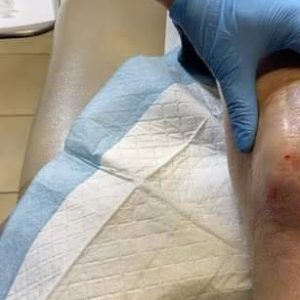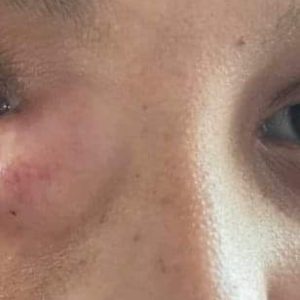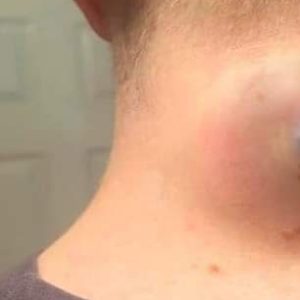Allergic Reactions
One of the most common dog skin problems is allergic reactions. Dogs can be allergic to various things like pollen, dust mites, certain foods, or even fleabites. This often results in intense itching, redness, and sometimes hair loss. Identifying and managing these allergies through dietary changes or medications is crucial for a dog’s comfort.
Fleas and Ticks
Fleas and ticks are not just a nuisance; they can also lead to significant skin issues for dogs. These tiny parasites not only cause itching and irritation but can transmit diseases as well. Regular preventative treatments are essential to keep these pests at bay and protect your dog’s skin health.
Hot Spots
Hot spots, or acute moist dermatitis, are areas of inflamed and infected skin that appear suddenly. They are often caused by scratching due to an underlying issue like allergies, parasites, or poor grooming. These spots can quickly worsen without treatment, so prompt attention and care are necessary.
Skin Infections
Dogs can develop various types of skin infections, such as bacterial or fungal infections. These can be secondary to other skin problems like hot spots or allergies. Symptoms include redness, swelling, and sometimes oozing or crusting. Treatment typically involves antibiotics or antifungal medications prescribed by a veterinarian.
Dry Skin
Just like humans, dogs can suffer from dry skin, especially in dry climates or during winter months. Dry skin can lead to itchiness and flaking. Providing proper hydration, a balanced diet rich in essential fatty acids, and using moisturizing shampoos can help alleviate this problem.
Seborrhea
Seborrhea is a condition where the skin produces too much oil, leading to greasiness, scales, and a distinct odor. It can be primary (genetic) or secondary to other conditions. Regular baths with medicated shampoos prescribed by a vet can help manage seborrhea and improve your dog’s comfort.
Yeast Infections
Yeast infections commonly affect a dog’s ears, paws, and skin folds. They thrive in warm, moist environments, leading to red, itchy, and sometimes smelly skin. Treatment involves antifungal medications and addressing any underlying causes like allergies or improper grooming.
Parasitic Infestations
Aside from fleas and ticks, dogs can suffer from other parasitic infestations like mites or lice. These pests can cause intense itching, hair loss, and skin irritation. Treatment may include topical medications or oral medications prescribed by a veterinarian.
Understanding these common dog skin problems and their symptoms is crucial for early detection and appropriate treatment. Regular grooming, maintaining a healthy diet, and keeping up with veterinary check-ups can go a long way in preventing and managing these issues, ensuring your dog’s skin stays healthy and comfortable.





